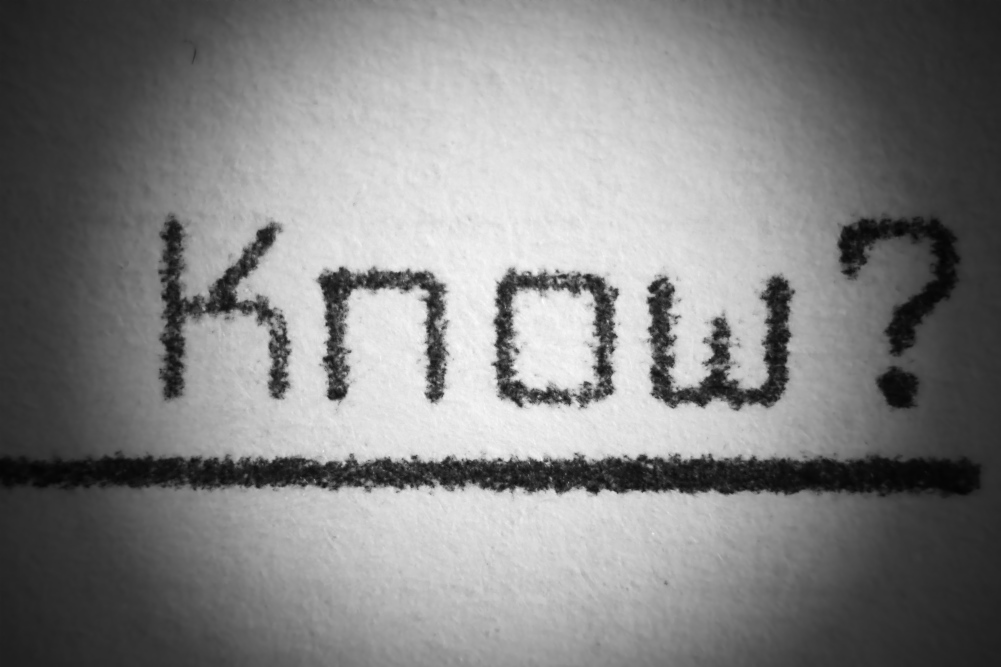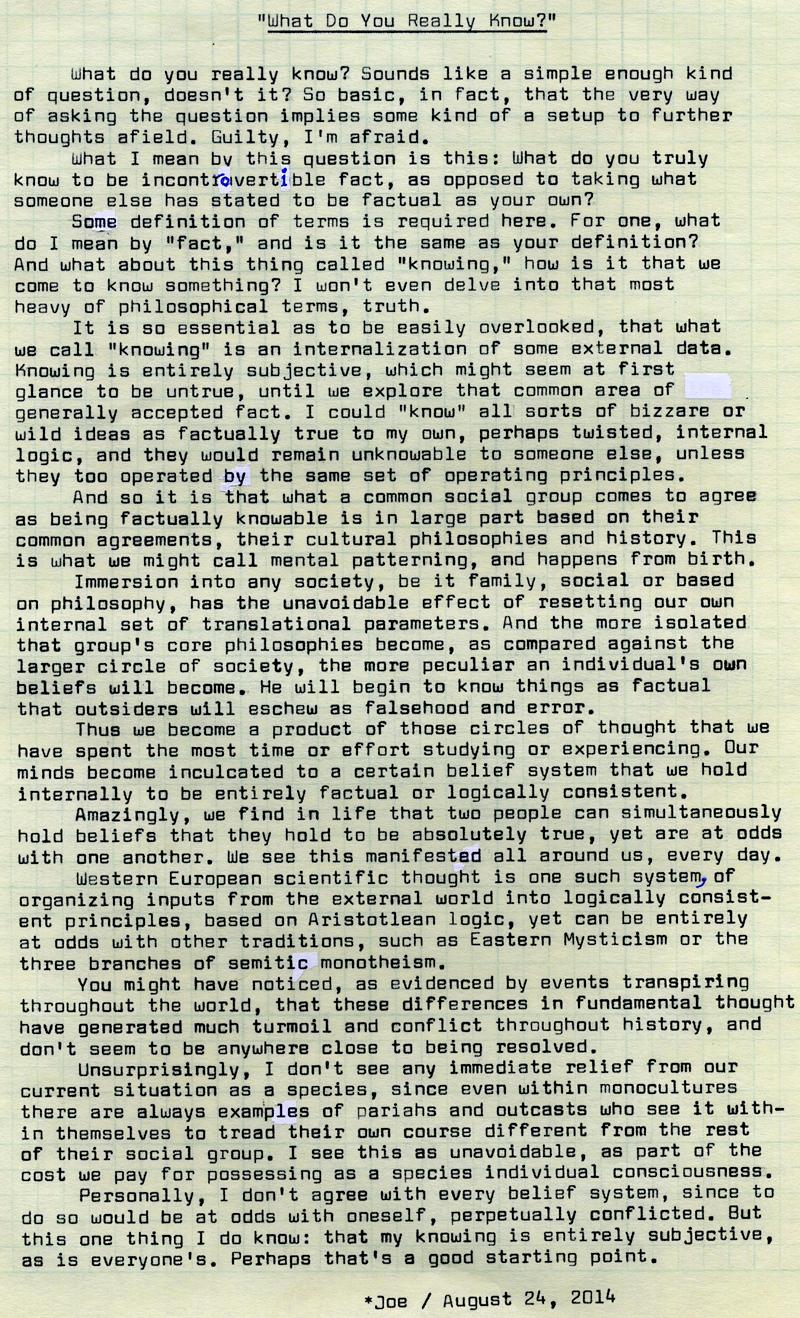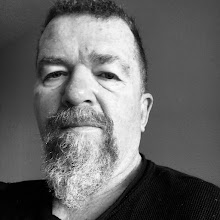What Do You Really Know?


Post-Script: Without getting into the gory details, these thoughts sprung up out of a series of conversations I've had with someone, who I'll just call Saul, wherein he stated that he knew something to be true, yet had never in actual fact personally experienced it. He read what a select group of others had justified in their own minds as true, and came to accept it for himself as true also. Furthermore, the things we were discussing are held to be highly controversial and dubious by the majority view within society.
I contend that for him to "really know" this thing as true would require him to personally experience it.
My contention is, of course, based on my background being firmly rooted in western scientific thought, in that for something to be knowable it has to be capable of being shown to someone else as also knowable; some sort of evidence must be available that most everyone can agree upon.
For example, suppose I was told that so-and-so went on a vacation to some exotic destination. I might not have actual proof of so-and-so's trip, such as a copy of plane tickets or hotel reservations, but I know the claim is not so outlandish as to be entirely impossible. Others have made similar trips, or so I'm told (again, another assumption on my part, entirely unproven in my own internal logic, except to take it on face value as true), and so it's not entirely unreasonable that so-and-so would have also made that trip. My degree of acceptance is based on the test of reasonableness - how likely is it, absent absolute proof.
This comes down to one of my core beliefs, that exceptional claims require exceptional evidence. I don't need proof of so-and-so's claims, since they are not extraordinary in themselves. He could by lying, merely bragging about his vacation, and that would not convince me such a trip is impossible, in theory, only that for him to make such a trip might or might not be true.
But let's say Saul's claims are indeed extraordinary. In this case, I can reasonably remain doubtful of their veracity without violating my own internal beliefs, absent direct evidence to the contrary.
But Saul's own internal frame of reference doesn't require such direct evidence; for him, it is enough that others, who he has some regard for their opinions, hold these beliefs. His own internal weight of evidence is borne up by the credibility of others. And that I can accept. We can agree to disagree and remain conversant as friends, knowing we are each guided by our own internal logic, however divergent they might be.
Typecast via Olympia SM9, photo via Lumix G5 and Minolta MD 24mm lens with close-up macro bellows.

2 Comments:
I know we'd be better off without religion. Or I "think: I know...
How about good old "cogito, ergo sum"?
Post a Comment
<< Home